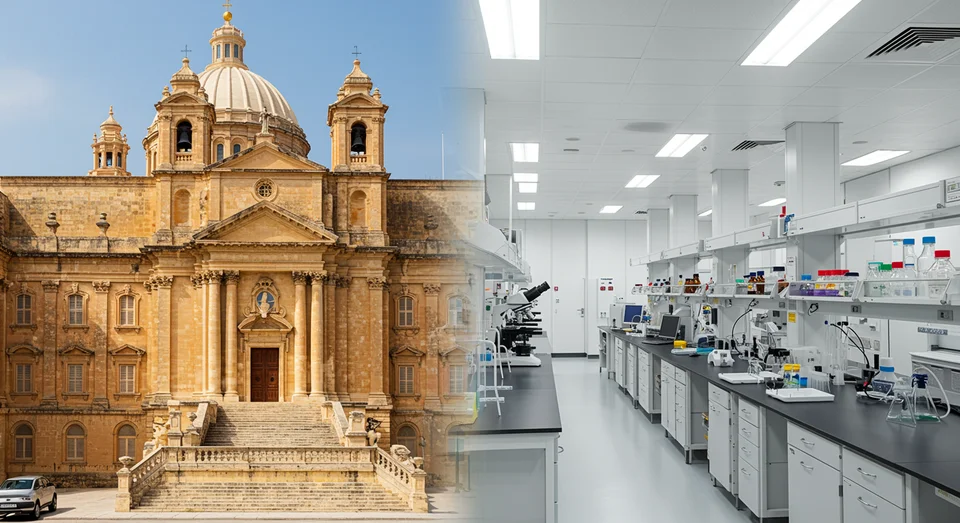University of Malta Pioneers AI and Chemotherapy Research to Revolutionize Cardiac Health
261 views
In a world where the intersection of technology and medicine is reshaping the future of healthcare, two groundbreaking projects at the University of Malta are setting a new precedent in cardiovascular research. With funding from Beating Hearts Malta and the University’s Research, Innovation, and Development Trust (RIDT), these initiatives aim to combat some of the most pressing challenges in cardiac health—chemotherapy-induced heart damage and the early detection of cardiovascular disease.

Bridging Science and Compassion: New Frontiers in Cardiac Health Research
Vanessa Petroni Magri, a researcher with an eye toward the delicate balance between life-saving treatments and their unintended consequences, is spearheading a project to mitigate the cardiotoxic effects of chemotherapy. While chemotherapy has long been a cornerstone in the fight against cancer, its toll on the heart muscle remains a formidable side effect, potentially leaving survivors grappling with long-term cardiovascular complications. Magri’s work, bolstered by a collaborative network of research centers in France, Portugal, and Ireland, seeks to unravel this conundrum. By exploring novel approaches to chemotherapy that spare the heart, her team hopes to deliver treatments that heal without harm—a prospect that could redefine the quality of life for cancer patients worldwide.
Meanwhile, Kenneth Scerri leads a project that feels plucked from the pages of a science fiction novel but is firmly rooted in the realities of modern medicine. Harnessing the power of artificial intelligence and wearable technology, Scerri’s team is developing systems to analyze data from smartwatches and single-lead ECG devices. These tools, often dismissed as mere fitness trackers, hold untapped potential to revolutionize the early detection of cardiovascular disease. By identifying subtle, often-overlooked markers of heart trouble, this research could pave the way for interventions before symptoms escalate into life-threatening conditions.
The significance of these projects is underscored by the support of Beating Hearts Malta, an NGO dedicated to improving cardiac health outcomes. University Rector Alfred Vella highlighted the indispensable role of philanthropic contributions in enabling such transformative research. He expressed gratitude to the organization, noting that their commitment not only fuels scientific discovery but also brings hope to patients and families confronting the specter of heart disease.
These initiatives are more than just academic exercises; they reflect a broader shift in how medicine is practiced and perceived. Magri’s work challenges the notion that cancer treatment must come at a steep cost to other aspects of health, while Scerri’s project underscores the growing influence of technology in preventative care. Together, they embody a holistic approach to medicine, where the focus extends beyond curing illness to preserving and enhancing overall well-being.
Beyond the immediate scope of these projects lies a larger narrative about the democratization of healthcare. Wearable devices, once considered luxury items, are increasingly accessible, and their integration into medical research signals a move toward more inclusive and personalized care. Similarly, the international collaboration behind Magri’s research highlights the importance of cross-border partnerships in tackling complex health challenges. These efforts remind us that science thrives not in isolation but in the collective pursuit of knowledge and innovation.
As these projects take shape, they invite us to imagine a future where technology and empathy coexist in the service of human health. Whether it’s a cancer survivor living without the shadow of cardiac complications or a patient whose smartwatch alerts them to seek medical attention before a crisis strikes, the potential impact is profound. In a world often defined by its divides, these research endeavors offer a unifying vision: one where the boundaries between disciplines, nations, and even the body and technology blur in the quest for a healthier tomorrow.




























